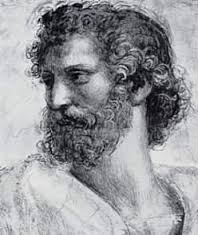Il concetto di fortuna (τύχη ed εὐτυχία) in Aristotele
(The Concept of Luck (τύχη and εὐτυχία) in Aristotle)
DOI:
https://doi.org/10.13135/2038-6788/9317Keywords:
Aristotle, Eudemian Ethics, Nicomachean Ethics, Eutychia, Luck, TycheAbstract
This essay analyzes the concept of “luck” in Aristotle on the basis of the two Greek words around which the Aristotelian doctrine in question gravitates, namely: tuche and eutuchia. The proposal here advanced is to translate tuche with “fate” and eutuchia with “good luck” or “prosperity” because the Italian “fortuna” (in English, luck or fortune), as tuche is normally translated, does not reflect the exact semantic value of the Greek notion. In fact, whereas tuche denotes a qualitatively neutral phenomenon, which is in itself neither good nor bad but is rather potentially declinable favorably (eutuchia) or unfavorably (atuchia), “luck” or “fortune” has a very positive meaning indicating prosperity, success, and, in short, a favorable fate. In Aristotle, the concepts of “luck” and “good luck” find their highest expression in the moral sphere. Here they are connected to the theme of happiness, but they denote the events and things that happen to people quite randomly in everyday life. An important and preliminary discussion of such concepts is in the second book of Physics, where Aristotle presents the four causes of reality, or the explanatory methods for everything that happens. Here, tuche and automaton (fate and case) are included under the etiological forms of Aristotelian causality as accidental (kata sumbebekos) causes. In the Ethics, Aristotle addresses the problem of “luck” and “good luck” and distances himself from the intellectual position of Plato, for whom wisdom and virtue are necessary and sufficient conditions of happiness and make human beings happy even when they are faced with the most adverse situations. On the opposite, for Aristotle, insofar as happiness is activity in accordance with virtue, it takes practice and commitment. The burden of fate within human existence, especially when it is negative, is able to disrupt the existence of even the happier human being. Yet, despite the recognition of the fragility of the acquired good and of human nature as they hang on the unpredictable vicissitudes of fate, in Aristotle’s ethics good character and virtues, once established, will allow the good and happy human being to face and withstand even the worst misfortunes with courage and intelligence.


